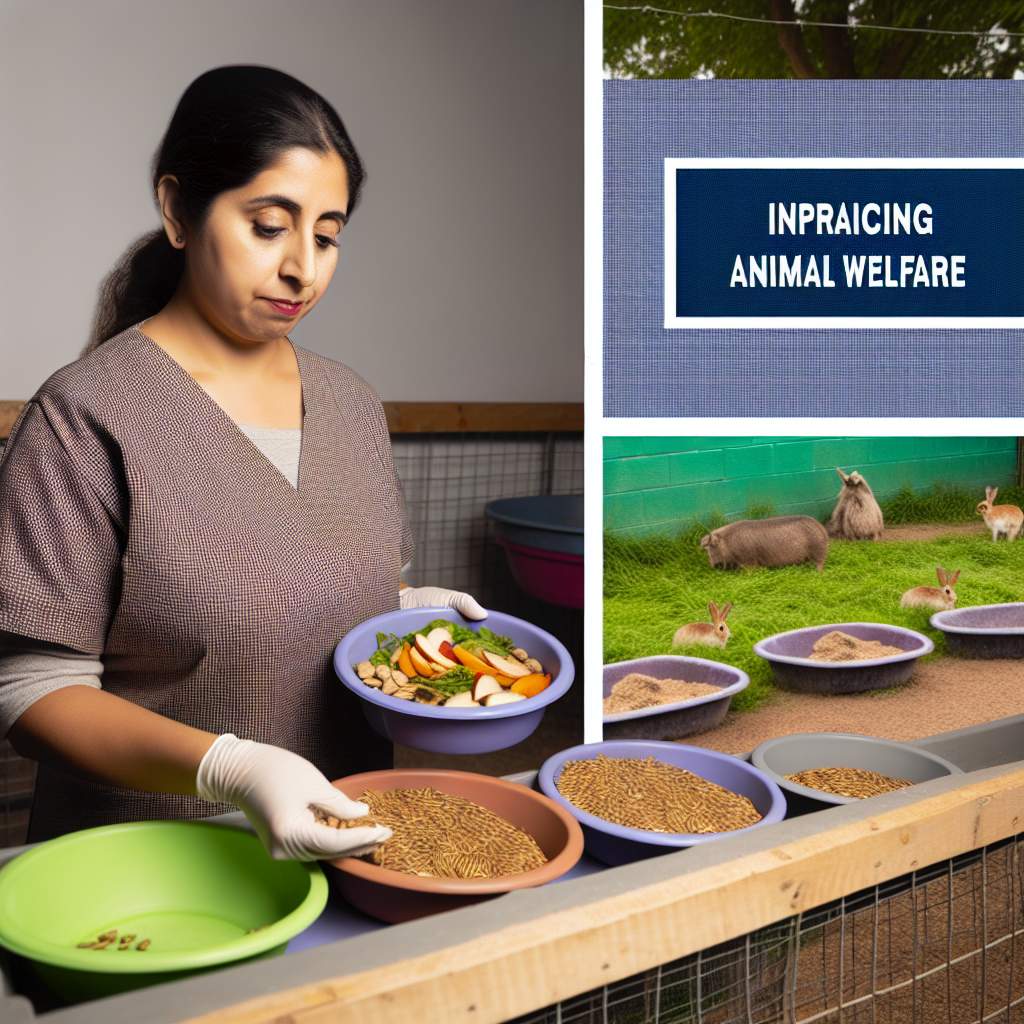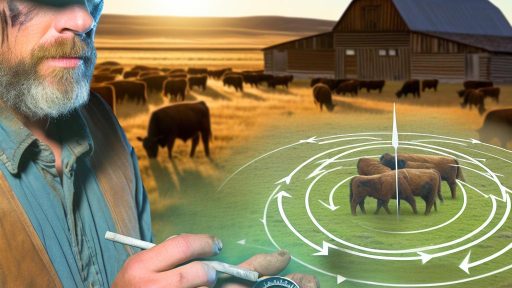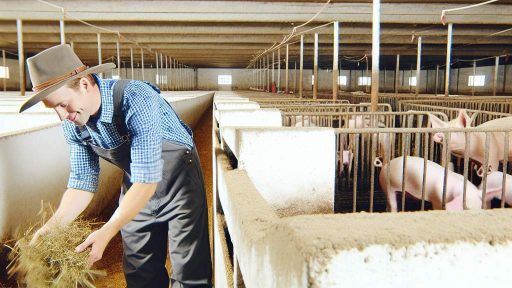Introduction to Animal Welfare: Importance and Challenges in America
Animal welfare remains a crucial issue in America today.
It encompasses the physical and psychological well-being of animals.
Humane treatment of animals affects their quality of life significantly.
Many animals face challenges due to industrial farming practices.
For instance, overcrowding and inadequate nutrition are common issues.
Such conditions lead to stress and health problems for the animals.
Farm animals often live in environments that do not meet their needs.
Consequently, these practices raise ethical concerns among consumers.
Moreover, public awareness of animal welfare is growing.
This shift prompts demands for change in the agricultural sector.
Farmers and producers must adopt ethical and sustainable practices.
By doing so, they can improve the lives of animals and public perception.
For example, ethical feed choices positively impact animal health.
Furthermore, housing conditions play a significant role in animal welfare.
Providing adequate space and comfort is essential for well-being.
Transform Your Agribusiness
Unlock your farm's potential with expert advice tailored to your needs. Get actionable steps that drive real results.
Get StartedHowever, transitioning to better practices can be challenging.
Farmers may face economic pressures and changing regulations.
Thus, support systems for farmers are necessary to facilitate improvements.
Collaboration among stakeholders can foster meaningful change.
Addressing animal welfare challenges is vital.
Without action, animals will continue to suffer in many farming practices.
Promoting ethical feed and housing practices is a step forward.
Understanding Ethical Feeding Practices
Types of Animal Feed
Animal feed variations significantly influence animal welfare.
Different types cater to various species and their specific needs.
For instance, ruminants require high-fiber diets.
On the other hand, carnivores thrive on protein-rich options.
Therefore, understanding these dietary requirements is crucial.
Impact of Feed Quality
High-quality feed contributes to healthier animals.
It enhances growth rates and reproduction in livestock.
Moreover, nutrient-rich feed can reduce disease risks.
Consequently, investing in quality feed is necessary for ethical farming.
Organic vs. Conventional Feed
Organic feed promotes sustainable farming practices.
It reduces chemical residues in animal products.
Conversely, conventional feed may contain additives.
Therefore, producers should weigh these options carefully.
Feeding Practices and Animal Behavior
Feeding practices affect animal behavior significantly.
Animals fed a consistent, balanced diet tend to behave better.
Inconsistent feeding schedules can lead to stress and aggression.
Thus, establishing regular feeding routines is essential.
Showcase Your Farming Business
Publish your professional farming services profile on our blog for a one-time fee of $200 and reach a dedicated audience of farmers and agribusiness owners.
Publish Your ProfileLocal Sourcing of Feed
Local sourcing of animal feed supports community economies.
It also reduces carbon footprints associated with transport.
Additionally, local feeds often use region-specific ingredients.
This approach promotes sustainable agricultural practices overall.
The Role of Research in Animal Feed
Research plays a vital role in developing ethical feeding practices.
Innovations can lead to more nutrient-efficient feed options.
Studies help identify the best ingredients for specific species.
Consequently, investment in research benefits animal welfare long-term.
Housing Practices for Livestock
Characteristics of Ideal Housing Conditions
Ideal housing conditions prioritize animal welfare and comfort.
Ample space is essential to ensure mobility and reduce stress.
Natural light enhances the well-being of livestock.
Ventilation systems maintain proper air quality within housing units.
Furthermore, insulation helps regulate temperature variations.
Providing bedding enhances comfort and promotes hygiene.
Moreover, a clean environment prevents the spread of disease.
Access to outdoor spaces significantly benefits livestock health.
These areas allow animals to express natural behaviors.
Water access must be continuous and uncontaminated.
Ethical practices ensure that housing meets species-specific needs.
Careful consideration of group dynamics is vital for social animals.
In addition, proper storage of feed and supplies supports health.
Monitoring of housing conditions helps identify potential issues early.
Regular inspections maintain high standards and compliance.
Implementing these characteristics significantly improves animal welfare.
Find Out More: Understanding Milk Quality Standards in Dairy Farming
The Role of Legislation and Standards in Animal Welfare
Current Policies on Animal Welfare
Legislation plays a crucial role in ensuring animal welfare in America.
Several federal and state laws govern the treatment of animals in agriculture.
The Animal Welfare Act is one of the key federal laws addressing animal welfare standards.
This act primarily focuses on humane treatment during transportation and handling.
However, it does not cover all animals used in agriculture.
State laws can vary widely, adding complexity to animal welfare regulations.
Several states have enacted more stringent laws for livestock treatment.
For example, California and Colorado have implemented robust animal welfare standards.
These laws include requirements for space, housing, and access to food and water.
Despite these advancements, many gaps remain in existing legislation.
Identifying the Gaps in Legislation
Many farmed animals still lack adequate legal protections under current laws.
For instance, the federal law does not include birds, rabbits, and other species.
This oversight allows poor living conditions for a significant number of animals.
Furthermore, enforcement of existing laws is often inconsistent.
Resource limitations hinder regulatory agencies from effectively monitoring compliance.
Showcase Your Farming Business
Publish your professional farming services profile on our blog for a one-time fee of $200 and reach a dedicated audience of farmers and agribusiness owners.
Publish Your ProfileAdditionally, penalties for violations can be less severe than needed.
In many cases, fines do not deter unethical practices in animal husbandry.
Moreover, public awareness about animal welfare issues is still limited.
A lack of transparency in farm operations can obscure animal treatment conditions.
Improvement in education and awareness can support legislative efforts.
Future Considerations and Reforms
Animal welfare reforms must include holistic approaches to legislation.
Proposed reforms aim to close existing gaps in protection for all species.
Encouraging public engagement can foster change in policy and standards.
Moreover, stakeholders must collaborate to establish comprehensive standards.
This includes farmers, lawmakers, veterinarians, and advocates.
Establishing clear guidelines can enhance animal welfare significantly.
Regulatory bodies should focus on ongoing training and resources for inspectors.
In addition, increasing penalties for violations can deter unethical practices.
Ultimately, cohesive efforts can lead to a more humane agricultural system.
Learn More: Best Feeding Practices for Optimal Swine Growth and Health
Consumer Demand for Ethical Animal Products
Trends in Consumer Preferences
Consumers increasingly prefer ethically produced animal products.
This shift stems from rising awareness of animal welfare issues.
Furthermore, many buyers prioritize sustainability in their purchasing decisions.
Studies indicate that younger generations are particularly concerned about these issues.
They seek brands that reflect their values and ethics.
Implications for Farmers
Farmers must adapt to these changing consumer demands.
By adopting ethical practices, they can enhance their marketability.
Investing in better housing and feeding practices improves animal welfare.
Such practices may lead to higher quality products and increased demand.
Moreover, differentiating products in the market can attract conscientious consumers.
Shifts in Market Dynamics
The market is increasingly responsive to consumer feedback.
Retailers are adjusting their shelves to feature ethical products prominently.
This trend creates opportunities for farmers committed to ethical practices.
Moreover, certification programs can guide farmers in meeting consumer expectations.
Such programs help to assure consumers of legitimate ethical claims.
Discover More: Equine Manure Management Strategies for Cleaner and Safer Barns
Case Studies: Successful Implementation of Ethical Feed and Housing Practices
Farm Innovations: Sunny Acres Farm
Sunny Acres Farm in Oregon transformed its feeding practices.
The farm shifted to organic feed, enhancing animal nutrition.
Farmers report healthier livestock and reduced stress levels.
Additionally, animal welfare ratings improved dramatically.
Sunny Acres serves as a model for other farms in the region.
Community Collaboration: Evergreen County
Evergreen County launched a community-driven initiative.
This program encouraged local farms to adopt humane housing practices.
Farmers collaborated with veterinarians for optimal designs.
The initiative significantly increased space and comfort for animals.
Showcase Your Farming Business
Publish your professional farming services profile on our blog for a one-time fee of $200 and reach a dedicated audience of farmers and agribusiness owners.
Publish Your ProfileConsequently, animal behavior and health improved noticeably.
Corporate Responsibility: GreenPastures Inc.
GreenPastures Inc. implemented rigorous ethical standards.
The company revised its feed sourcing to focus on sustainability.
They ensured all feed was free from harmful additives.
Employee training emphasized animal-centric practices across the board.
As a result, customer trust and loyalty surged.
Research-Backed Practices: Animal Welfare Institute
The Animal Welfare Institute published thorough research findings.
They demonstrated the benefits of space-rich environments.
Studies showed less aggression and better overall health in animals.
This research prompted many farms to reevaluate their housing systems.
The findings gained traction as best practices nationwide.
Tech Integration: AgroTech Innovations
AgroTech Innovations introduced advanced monitoring systems.
These systems track animal well-being in real time.
Farmers receive alerts regarding environmental changes.
This technology promotes immediate action to ensure welfare.
Farm productivity and animal health have improved remarkably.
You Might Also Like: Strategies for Reducing Antibiotic Use in Dairy Farming

The Economic Impact of Improving Animal Welfare
Costs for Farmers
Investing in ethical feed and housing requires substantial initial capital.
Farmers may experience higher operational costs due to better quality feed.
Moreover, upgrading facilities can strain financial resources in the short term.
Insurance premiums might also increase with enhanced housing standards.
Benefits for Farmers
Despite upfront costs, ethical practices can lead to long-term savings.
Healthy animals reduce veterinary expenses over time.
Additionally, improved welfare enhances productivity and growth rates.
Better animal conditions often lead to higher quality products.
Market Opportunities
Consumers are increasingly seeking ethically produced food options.
Farmers who adopt ethical practices can tap into this lucrative market.
Furthermore, premium pricing can boost revenue for ethical products.
Establishing strong brand loyalty can also result from responsible practices.
Consumer Perception
Transparency in animal welfare practices builds consumer trust.
Positive public perception can enhance a farm’s reputation.
Moreover, ethical practices align with emerging consumer values.
As a result, farmers may enjoy increased sales and loyalty.
Future Trends in Animal Welfare: Innovations and Research in Feed and Housing
Advancements in Feed Technology
Innovative feed formulations are transforming animal nutrition.
These new products improve health and enhance growth rates.
For instance, companies like FarmFresh Foods are exploring plant-based diets.
Such diets can significantly reduce dependency on animal protein.
Moreover, nutritional supplements like probiotics boost gut health.
These supplements contribute to better digestion and immunity.
Researchers at the Animal Nutrition Institute investigate feed additives.
Showcase Your Farming Business
Publish your professional farming services profile on our blog for a one-time fee of $200 and reach a dedicated audience of farmers and agribusiness owners.
Publish Your ProfileThese additives aim to reduce methane emissions from livestock.
Additionally, tailored feed programs cater to specific animal needs.
Customized nutrition promotes overall well-being and productivity.
Improving Housing Conditions
Modern housing solutions prioritize animal comfort and safety.
Innovative designs create more spacious and enriched living environments.
For example, the Open Barn initiative offers free-range facilities.
These facilities allow animals to roam and exhibit natural behaviors.
Furthermore, the installation of automated climate control systems enhances comfort.
This technology maintains optimal temperatures and ventilation.
As a result, animal stress levels decrease significantly.
Companies like GreenFields Agriculture are leading these housing advancements.
They focus on implementing sustainable materials in construction.
Research and Collaboration for Better Practices
Collaboration among researchers, farmers, and organizations drives progress.
The Animal Welfare Consortium brings stakeholders together for shared goals.
Such partnerships foster innovation in farming practices and policies.
Additionally, universities conduct extensive studies on animal behavior.
These studies inform better housing and feeding strategies.
Regular workshops provide farmers with the latest research findings.
This continuous education leads to improved animal welfare standards.
Moreover, consumer demand influences the adoption of ethical practices.
As consumers become more informed, they advocate for humane treatment.
This trend encourages the agricultural industry to innovate and adapt.
Engaging with Stakeholders
Collaborating with NGOs
Non-governmental organizations play a crucial role in promoting animal welfare.
These groups often advocate for better practices and policies.
Organizations like the Humane Society work tirelessly on behalf of animals.
Partnering with them can elevate public awareness.
Moreover, collaboration fosters innovative solutions to common problems.
Working with Government Agencies
Government involvement is essential for enacting change.
Agencies can implement regulations that protect animal welfare.
Engaging with local, state, and federal bodies is vital.
For instance, the USDA has guidelines for humane treatment.
Advocacy can push for stricter enforcement of these regulations.
Involving Consumers in the Conversation
Consumer awareness influences agricultural practices significantly.
Educating the public about ethical farming can drive demand for better products.
Transparency is key to building consumer trust.
Engaging consumers allows farms to adapt to market demands.
Farmers can host open days to allow the public to see operations.
Establishing Partnerships for Greater Impact
Building partnerships among stakeholders creates a united front.
These alliances can amplify advocacy efforts.
Shared resources lead to more effective campaigns.
Showcase Your Farming Business
Publish your professional farming services profile on our blog for a one-time fee of $200 and reach a dedicated audience of farmers and agribusiness owners.
Publish Your ProfileMoreover, inter-organizational collaboration promotes knowledge sharing.
Each entity brings unique strengths to the table.
The Path Forward for Ethical Animal Welfare Practices in America
To improve animal welfare, we must commit to ethical practices in feeding and housing.
This requires creativity and innovation in our agricultural systems.
Farmers should adopt sustainable feeding practices that prioritize animal health.
For instance, integrating plant-based diets can minimize environmental impact.
In addition, using organic and responsibly sourced feed can enhance overall welfare.
Innovative Housing Solutions
Housing plays a critical role in animal welfare.
Providing spacious and comfortable living conditions fosters well-being.
Furthermore, incorporating natural light and proper ventilation is essential.
Innovative designs, such as free-range systems, promote more natural behaviors.
These solutions can significantly improve the quality of life for animals.
Educating Stakeholders
Education is vital to advancing ethical animal welfare practices.
Farmers, consumers, and policymakers must all understand their roles.
Organizations like the Animal Welfare Institute provide essential resources.
Moreover, community outreach programs can raise awareness about humane practices.
Collaboration and Support
Collaboration among various stakeholders is crucial for progress.
Partnerships between farmers and animal welfare organizations can yield positive results.
Support from consumers can drive demand for ethically produced products.
Increased funding for research will also provide new insights and solutions.
Policy Implementation
Strong policies can enforce ethical practices across the industry.
Governments should create regulations that prioritize animal welfare standards.
Additionally, providing incentives for adopting humane practices can encourage compliance.
Regular audits and assessments can ensure that standards are maintained.
Ultimately, the path forward involves a collective effort.
By embracing ethical feed and housing practices, we can ensure better lives for animals.
Together, we can make significant strides in animal welfare across America.
Additional Resources
Animal Welfare in the Supply Chain | Tyson Foods
Guide for the Care and Use of Laboratory Animals, 8th edition …




